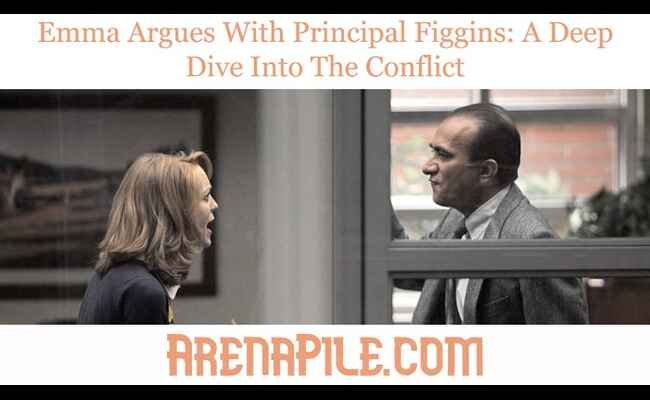
Tile Flooring Ideas: Designs For Every Room of Your House
December 2, 2022
The Surprising Well-known Benefits Of Steam Showers
December 8, 2022What Is Literary Fiction? The Literary Fiction Definition 2024 Is today’s topic. Literary fiction is a form of narrative storytelling that focuses on characters’ psychological, social, and philosophical aspects and their development over time. It often explores complex themes such as identity, morality, relationships, and personal growth through the lens of an individual’s experience. Literary fiction is typically characterized by depth in characterization and plot structure, vivid imagery, and the use of sophisticated language.
To gain a deeper understanding of literary fiction, it is important to become familiar with some key elements. Characterization is one such element in literary fiction, and characters are often complex and multi-dimensional. Their actions and decisions reveal hidden aspects of their personality that can be explored further as the story progresses. The plot structure is also an important element of literary fiction, as the plot often evolves gradually from one scene or event to the next.
What Is Literary Fiction? The Literary Fiction Definition 2024
Writing Elements Of Literary Fiction
When writing literary fiction, authors use various techniques to create vivid imagery and bring their stories to life. Dialogue is an important part of the narrative, as it helps bring characters and their relationships alive. The description also creates an atmosphere and gives readers sensory details about a setting or environment. Keep reading to learn more about the writing elements of literary fiction.
Characterization & Development: Creating believable and compelling characters is essential in literary fiction. Characterization involves crafting multi-dimensional characters with believable flaws, motivations, beliefs, and goals. As the story progresses, it is important for authors to portray their characters realistically and consider their development over time.
Plot and Structure: Developing the plot and structure of a story is important in literary fiction. Authors need to consider how each scene or event connects to the greater narrative arc and how different storylines intersect and converge. The structure also assumes pacing, tone, point-of-view, and other narrative elements.
Setting and Symbolism: A well-crafted setting can create an immersive experience for readers. In literary fiction, authors use vivid language to describe the time and place in which a story takes place and the emotions of characters within that environment. Symbolism is another important element, as authors often incorporate symbols to represent ideas or themes explored throughout the story.
Style and Tone: The style and tone of a story can also contribute to the overall feel and atmosphere. Style refers to the author’s choice of language, sentence structure, and other narrative elements, while tone is the emotional quality that an author conveys through their writing.
Approaches To Writing Literary Fiction
Authors can take several different approaches when writing a piece of literary fiction. Some authors prefer to focus on character development and explore themes through the characters’ experiences, while others may use symbolism or foreshadowing to create an atmosphere of mystery and suspense. Ultimately, every author has their own unique approach according to what works best for them.
Writer’s Voice and Perspective: A writer’s voice is the individual style and perspective they bring to their work. It often comes down to a combination of how an author chooses to use language, narration techniques, and other elements to create a distinctive effect in the reader’s mind. Many authors rely on their personal experiences and perspectives when crafting stories, as it can effectively make a story feel more intimate and engaging.
Point of View: Choosing the right point of view for a story can greatly impact how readers receive it. Authors often opt for first-person narration, as it allows them to channel their own emotions and experiences into the story in an intimate way. However, third-person narration can also be effective in creating distance between the narrator and the characters to explore a larger theme or idea.
Narrative Structure: When crafting a narrative structure, authors need to consider how events and scenes will connect together to drive the story forward. It is important to decide where the story begins and ends and what plot points should be included between those points.
These are just a few of the elements that go into creating successful literary /. Every author has their own unique style and perspective, but understanding the basic elements of literary fiction can help authors craft compelling stories that readers will enjoy.
Finding Your Editing Techniques
Once the writing process is complete, it is important to go back and edit your work. This includes finding your own unique style and “voice” as an author, making sure that each scene or event progresses the story in a meaningful way, and considering how various elements, such as characters, setting, tone, and point of view, can be used to drive the narrative.
Editing your work can also involve making sure that the narrative arc and pacing are effective and sewing together different storylines in a satisfying way. Additionally, it is important to look for any typos or grammar mistakes that may have been missed during the writing process.
Strategies For Developing Your Style As A Writer
Reading widely is one of the most important things an aspiring writer can do, as it exposes them to different styles and techniques which they can learn from and incorporate into their own work. Additionally, writing regularly and experimenting with different approaches in a safe environment can help an author find and hone their unique style.
Aspiring authors should also keep a notebook handy to jot down any creative ideas that may arise and should make sure to give themselves time to brainstorm ideas before starting the actual writing process. It is important to get feedback from other writers or editors to get an outside perspective and identify any potential areas of improvement.
By understanding and utilizing the elements of literary fiction, aspiring authors can develop a unique style that resonates with readers and allows them to create works of art that will be remembered for years to come. With dedication and hard work, anyone can become adept at writing great stories.
In Conclusion
Successful literary fiction requires hard work and dedication. Still, by understanding the various elements of literary fiction and honing your own style as an author, you can create stories that will touch readers’ hearts. From deciding on the right point of view and narrative structure to editing your work and getting feedback, every step of the writing process is essential to crafting something special. With determination and passion, you, too, can write stories that will be remembered for years to come. Hope you enjoy reading our article What Is Literary Fiction? The Literary Fiction Definition 2024.



